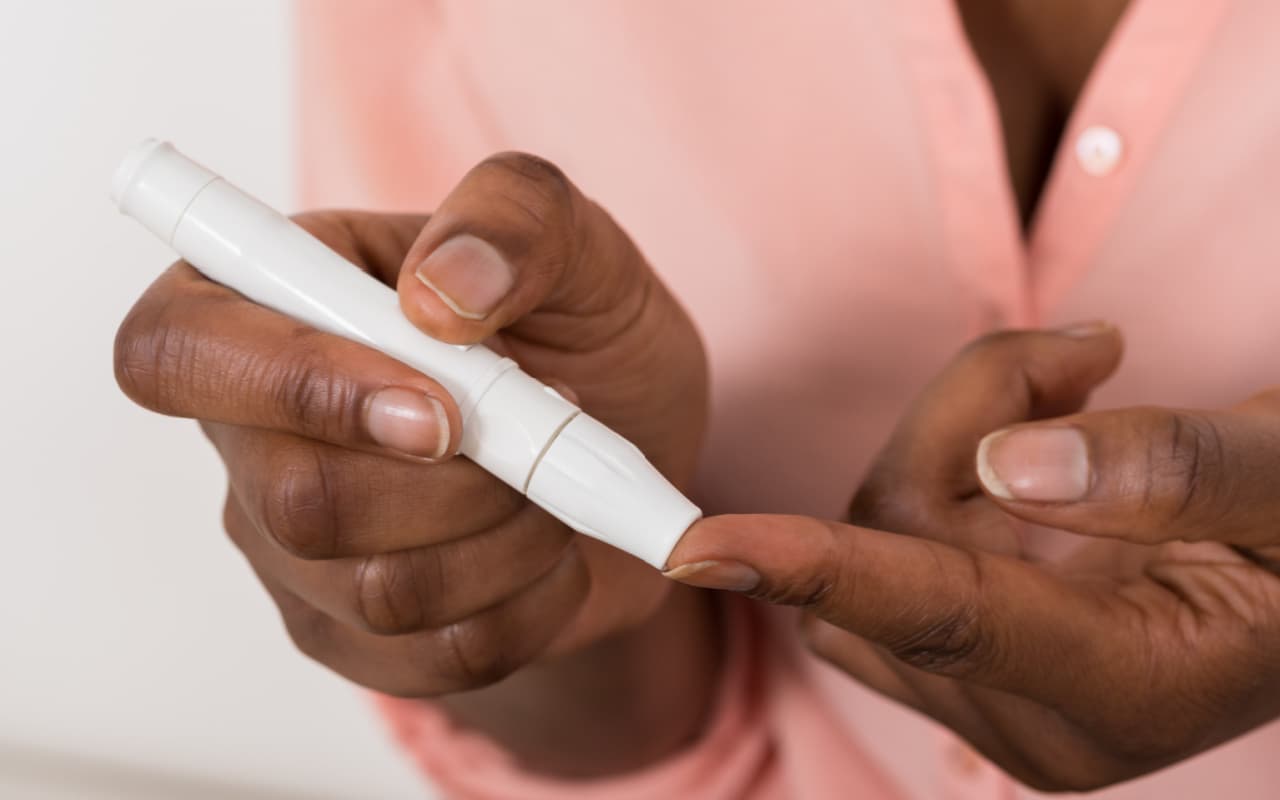7 Must-Have Items to Keep Blood Sugar Balanced of 2025

Verified by Kiera Powell, R.N. and written by Chad Birt on Mon Dec 30 2024.
Medically Verified

According to the American Diabetes Association, more than 14.3 million Americans aged 65 and older have diabetes, a group of diseases that affect the body’s ability to regulate blood sugar. So, what are the 7 must-have items to keep blood sugar balanced?
There’s no cure for diabetes, but through a combination of daily monitoring, healthy lifestyle changes, and routine preventive care, it’s possible to stay healthy and keep blood sugar levels in check. However, for prediabetes, which means that one's A1C level (that measures average blood sugar levels) is between 5.7% and 6.5%, one can avoid getting type 2 diabetes through lifestyle changes.
If you care for someone with diabetes, make sure to keep a diabetes care kit on hand. Supplies like medications, insulin, a blood glucose meter, or emergency snacks can reduce the risk of potentially serious blood sugar issues and even save your loved one’s life.
To make things a little easier, we’ve created this guide of what to have for healthy blood sugar and diabetes care.
1. Emergency information
Before you go out and pack a diabetes care kit, take the time to write down everything you can about your senior’s diagnosis and current condition, including the type of diabetes they have (along with any underlying issues) and a list of all of the medications they take.
Though it might seem like a hassle, this information can be incredibly valuable in the event of hypoglycemia (low blood sugar), hyperglycemia (high blood sugar), or another medical emergency.
In addition, gather the following:
A list of emergency contacts
The names and phone numbers of your senior’s PCP and other medical providers
Health insurance card
List of any allergies your senior has
2. Supplies for monitoring blood sugar
Anyone living with diabetes must monitor their blood sugar regularly. Without intervention and treatment, high blood sugar can damage the blood vessels that supply the internal organs, increasing the risk of heart disease, kidney disease, vision, and nerve problems.
No matter the type of diabetes your loved one has, make sure your kit includes supplies for glucose monitoring, including:
A carrying case for the monitor, testing strips, and insulin
Glucagon (for diabetic emergencies)
You might also want to include a small notebook or note cards. Each time your senior checks their blood sugar, write down the date, time, and glucose monitor reading.
3. Supplies for administering insulin
If your loved one has type 1 diabetes or type 2 diabetes and excessively high blood sugar, or hyperglycemia, they’re prescribed insulin therapy. Your loved one may also experience prediabetes, but this is not typically treated with insulin therapy. However, they may be prescribed an oral medication, called metformin, that along with lifestyle changes helps with blood sugar management.
Insulin therapy uses special tools, like syringes or an insulin pen, to administer insulin, a hormone produced by the pancreas responsible for regulating blood sugar to help with diabetes management.
Supplies needed for insulin therapy include:
Insulin
Syringes, an insulin pen, or an insulin pump
Needles
Plastic container for disposing of empty needles
Glucose tablets
Alcohol wipes
Gauze
Bandages
4. Healthy snacks
Diabetes causes your loved one’s blood sugar to fluctuate throughout the day. One of the easiest ways to ensure normal glucose levels is by encouraging them to consume snacks that are high in fiber, protein, balanced carbohydrates, and healthy fats. Some of the most popular diabetes-friendly snacks include:
Hard-boiled eggs
Apple slices and peanut butter
Peanut butter and celery
Cottage cheese
Avocado
Vegetables and hummus
Almonds
Tuna salad
It’s also a good idea to have some not-so-healthy snacks on hand in the event of a diabetic emergency. Sugary treats like soda, fruit juice, jelly beans, or chocolate can cause your senior’s blood sugar levels to spike if they experience low blood sugar or hypoglycemia.
Another great option to have on hand is a nutrition shake. Check out Glucerna—their nutrition drinks are specifically made for people with diabetes. As always, check with your healthcare provider if you intend to change or supplement your diet so you can further track blood sugar changes.
5. Skincare supplies
People with diabetes are also more likely to experience poor circulation. Over time, lack of blood flow to the feet increases the risk of diabetic ulcers, dry skin, and even athlete’s foot. Fortunately, with routine monitoring, these and other issues are easy to prevent.
When caring for someone with diabetes, use daily foot inspections to identify the signs and symptoms of potential problems. Items that can assist you in these efforts include:
Nail clippers, scissors, and a nail file
Handheld mirror to inspect cuts, calluses, corns, or blisters
Clean socks that are warm and padded, or try compression socks
If your senior isn’t mobile enough to perform foot inspections on their own, go ahead and do it for them. If you notice any cuts, swelling, sores, or changes to the appearance of their skin or nails, make an appointment with their PCP as soon as possible.
Recommended: What Are Compression Socks?
6. Bottled water
Many people with diabetes experience extreme thirst. Instead of pouring your senior a glass of juice or a sugary soda, opt for water. Water contains no calories and no sugar, making it the perfect beverage for those with diabetes.
If your loved one doesn’t like the taste of water, crush up some fresh berries in their glass or incorporate a few slices of lemon, lime, or orange. For those who have dysphagia, we carry thick water.
7. Extra supplies and an itinerary
A diabetic emergency can strike at any time, so it’s important to be prepared. Make sure your diabetes care kit includes duplicates of everything so you can always manage blood glucose levels. It’s also a good idea to pack batteries for the glucose monitor or any other battery-powered device.
If you’re traveling for several days, you might also want to leave an itinerary with friends or family. That way, if something comes up, they can get a hold of you.
Recommended: 10 Diabetic Supplies to Adapt to a New Diagnosis
If you have questions about any of the diabetes-related items we’ve linked to in this post, please reach out to our friendly Caregiving Specialists. Call (800) 696-CARE or send an email to support@carewell.com. They can help you make the right decision for your loved one’s needs.
Other Articles You May Like

How to Stop Weight Loss in Diabetes
Everyone’s body weight fluctuates from time to time. But if you start shedding more and more pounds, you might have an underlying health problem, like diabetes.
Read More >
Pros and Cons of Nutritional Supplement Drinks for Older Adults
Many older adults and their caregivers often consider adding a nutritional supplement drink to the diet to help address or prevent weight loss. However, these drinks may not be the ideal solution for every individual or situation. To help you make informed decisions, we've developed a comprehensive guide. Learn more about nutritional shakes for seniors, including their benefits, potential drawbacks, and when to consider incorporating them into your diet or that of a loved one.
Read More >
Chad Birt is a freelance medical writer who resides in Astoria, Oregon. When he isn't behind a keyboard, you can find him hiking, camping, or birdwatching with his wife Ella and their two dogs, Diane and Thoreau.